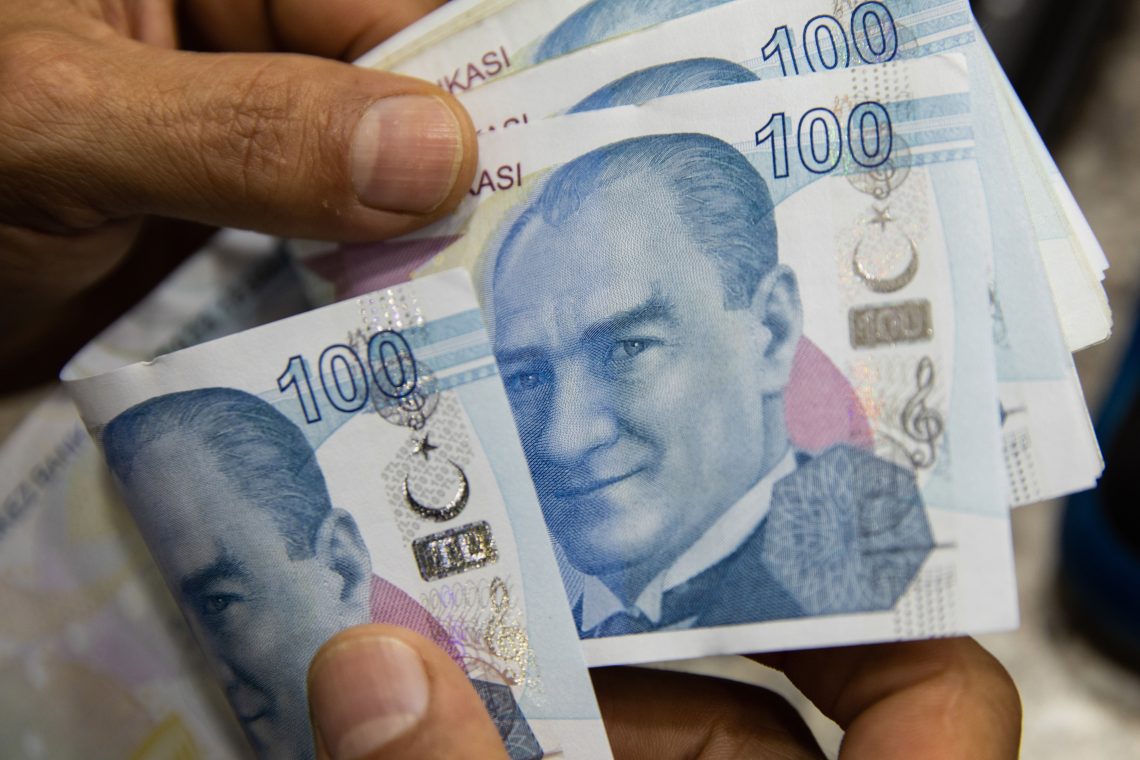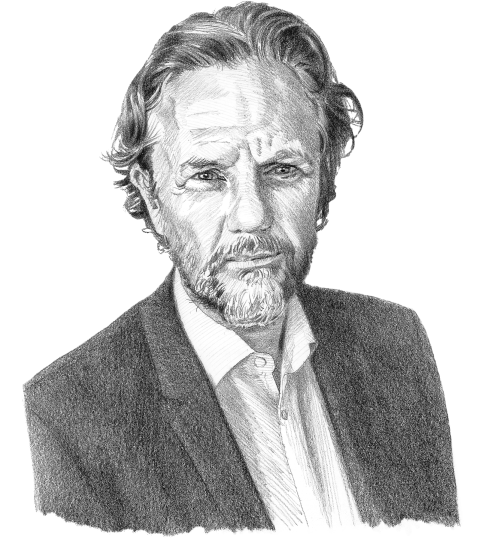How Turkey’s economic shift could alter its political landscape
Ankara’s recent move to economic and monetary orthodoxy could help keep President Erdogan in the political driver’s seat.

In a nutshell
- Policy changes are rapidly improving many of Turkey’s economic indicators
- Erdogan faces declining support; economic stability may boost his standing
- Constitutional changes, improved governance could help him retain power
A year has passed since Turkey’s government made an important shift in economic policy, followed by additional orthodox monetary steps, and the encouraging results may offer President Recep Tayyip Erdogan a path to retain the presidency for years to come. The question is whether he will ride on a wave of improving economic indicators thanks to modest, short-term policy modifications to seek long-term, constitutional changes that would allow him to remain in power beyond 2028.
In June 2023, after Turkey had suffered five years of extreme inflation, the loss of foreign investment and widening fiscal deficits, a newly appointed minister of treasury and finance set out on a course of textbook policy while the central bank kept raising interest rates. The move has yielded positive results. Given the government’s history, however, one question still looms large: Is this policy shift tactical or strategic?
The answer partially hinges on the sustainability of the current policy. It started with foreign diplomats making pronouncements a year ago and now continues with portfolio managers adjusting their holdings. The March 2024 election results, in which the opposition made gains at the expense of support for Mr. Erdogan, further strengthened the policy framework. It may have marked the point of no return from his previous economic moves.
It takes two to tango
At its outset, the policy shift appeared tactical. The Turkish economy was in shambles, mostly due to serious policy errors from 2018 to 2022. The Turks realized that $5 billion in financing from Saudi Arabia (which Ankara repaid this July) was not going to be enough. It may have been enough for Pakistan for a year, or Egypt for a few months, but for Turkey, $5 billion is barely enough for a day. Turkey is a country with a structural savings deficit. It needs deeper cash flows to keep its economy afloat.
The best way to right the ship was to return to international United States dollar markets, and that could be achieved only by going through the proper channels. That meant putting together a program of reasonable economic policies, as well as a normalization of Turkish foreign policy. In other words, Turkey needed to return to its treaty allies in the West. So, a year ago, that is what Turkey did.
Though the move may sound tactical, it could turn into a strategic decision depending on how Turkey’s trading peers react. It takes two to tango. If Turkey finds dancing partners, the process could easily become a strategic shift that improves President Erdogan’s popularity and keeps the door open for him to remain in power. Due to term limits stipulating that his current, second term as president concludes in 2028, and in light of his declining public support in recent elections, Mr. Erdogan indicated this March he would respect the current constitution and not seek reelection.
Learn more about Turkey with GIS Dossiers
- GIS Dossiers offer the analysis needed to make crucial decisions. Dossier: Turkey The former Ottoman Empire was a sleepy agricultural society until reforms spurred development in the 1980s. In the 21st century, it is a pragmatic regional power straddling Europe and the Middle East; a player to be reckoned with.
But if the policy shift starts to produce positive results, it could remain in place for quite some time. Developments are moving in that direction. Tighter monetary policy is working. In a series of rate hikes, Turkey’s central bank raised the main interest rate from a low of 8.5 percent in June 2023 to 50 percent in March, where it has since remained.
Turks have already started to shift their portfolios from foreign exchange to Turkish liras. The total volume of foreign-exchange-protected Turkish lira accounts has declined despite the currency’s weakness, which was a time bomb built during the “irrational” policy years. Foreign investors are now also following the lead of their Turkish peers and shifting to lira-denominated assets. The central bank has started to accumulate its own reserves of U.S. dollars, decreasing reserves borrowed through swap agreements. That further improved the effectiveness of monetary policy decisions.
Inflation peaked at around 75 percent this May, moved a touch lower to 71 percent in June and is expected to decline to roughly 40 percent by year-end, according to the Turkish Central Bank’s forecast from May.

Budget deficit projections at Turkish economic research organization TEPAV have also declined from 8.3 percent of gross domestic product (GDP) to 6.9 percent. In line with medium-term program expectations. The improvement is due to the government’s initial fiscal policy measures and rapidly rising prices; inflation helps fiscal policy by nominally increasing tax revenues. Nevertheless, even a deficit of 5 percent of GDP is too high for Turkey, and market observers are expecting a second fiscal policy package to boost tax revenues beyond the impact of rising inflation.
A year after the policy shift started, Turkey’s risk premium has declined to 255.8 basis points from a high of 800 in the previous policy era. While that looks impressive, the current premium is still too high to pay in foreign exchange borrowing.
Why is this Turkish policy shift a point of no return?
Early positive policy results tend to turn the tactical into the strategic. Can President Erdogan go back to his earlier unorthodox, irrational policies after achieving a reasonable level of economic stability? No, he cannot and he will not. There are several reasons why.
First, even if inflation does fall to about 40 percent by the end of the year as hoped, Turkey would remain among the top 10 highest-inflation countries. By that indicator, Turkey may not be faring as poorly as Venezuela, but it is on par with South Sudan and Sierra Leone. There is hope that the policy changes will push inflation down to around 15 percent in late 2025, putting Turkey somewhere between the Democratic Republic of the Congo and Yemen. Any hope of achieving a figure in the single digits is possible only if the economy remains stable and monetary policy is credible. Mr. Erdogan simply cannot afford any more mistakes. Any backsliding can once again lead to expectations that inflation will start rising again, driving the risk premium higher and preventing any anticipated monetary easing.
Read more about Turkey
- Post-election Turkey returns to economic orthodoxy
- The future of U.S.-Turkey relations
- As Turkey begins its second century, uncertainty looms
Second, in municipal council elections in March 2024, Mr. Erdogan’s Justice and Development Party (AKP) party garnered just under 30 percent, compared to 36 percent in general elections in May 2023 and 43 percent in 2018. The steady decline in support is a result of the rising cost of living and bleak economic outlook.
This reflects that while headline inflation may continue to decline, lowering the total cost of living and making life bearable for the lower to middle classes requires more than price-stabilization policies. Improving their quality of life requires a new growth and job-creation strategy for the country. In turn, that requires decarbonization plans, education reform, rule of law measures and resolving the operational problems of Turkish courts. Achieving such reforms could lead to a boost in foreign direct investments, which have become negligible in recent years.
Third, the modernization of Turkey’s customs union framework with the European Union can provide a structural reform agenda, coupled with a new growth agenda for the country. However, for customs union modernization to start, Turkey has to convincingly make its claim that joining the EU (accession negotiations stalled in 2016) is a strategic priority by taking measures to enhance democracy and the rule of law.
Scenarios
Most likely: More orthodox policy, economic stability and no mention of constitutional changes
Under this scenario, President Erdogan’s objective would be to complete his second and final term according to Turkey’s current constitution, with no discussion about changes, referenda or early elections. Holding early elections could hinder the economic upswing and jeopardize his current grip on power.
Possible: After the economy stabilizes, Erdogan broaches the topic of constitutional changes and reelection
Despite Mr. Erdogan pledging to leave power at the end of his term, there are indications he would like to stand for election again. While doing so would breach Turkey’s current constitution, there are three things he could do to change the rules.
First, parliament could dissolve itself earlier than 2028. The Turkish constitution mandates simultaneous snap elections for both parliament and the presidency in such a situation. That would give President Erdogan an opportunity to stand in the new elections, since he would not have completed two full terms in the present system. This would be a controversial move, however, and the number of AKP members of parliament is not enough to dissolve the parliament. For that, the president needs 33 more votes for a parliamentary majority. Note that before the 2023 elections only eight votes were needed by Erdogan for a parliamentary majority. His current parliamentary partner, Nationalist Movement Party (MHP), is a right-wing nationalist party that provides the necessary 33 votes out of its 50 MPs. However, after last year’s elections, MHP has become more important, increasing its bargaining power. The 2024 municipal election results, with the AKP falling below 30 percent, and a current controversy implicating MHP in a political assassination, make this option harder to move forward.
A second path is that Mr. Erdogan may opt to change the relevant article of the constitution describing term limits, allotting new terms to himself. Again, however, his power in parliament alone is not enough to change the constitution. Even if he manages to bring that single-article constitutional amendment to a public referendum, it can be defeated. So, not only is he dependent on the MHP, but he also lacks a majority of public support.
The third option for Mr. Erdogan to change the system to keep his hold on power is if he and the AKP foster an atmosphere of detente in Turkish politics by offering a semi-presidential system to the opposition. A semi-presidential system involves a directly elected president, a prime minister to lead their party to victory in general elections, a council of ministers with collective responsibility, and ministers who need to get parliament’s vote of confidence to start their jobs.
A constitutional change of these proportions could allow President Erdogan to stand in the 2028 elections as a stronger candidate. Stronger here means less contentious, as the opposition could attest that this “new” presidency is different from the “former” presidency in terms of its powers. A constitutional change to semi-presidentialism is the least controversial way for Mr. Erdogan to move forward should he seek to make changes that allow him to stay in office. Even in the event of losing the elections, this third option guarantees a smoother transition in the country, potentially with less post-transition controversy.
This path, however, is complicated. Paving the way for a change of this magnitude will require brinkmanship of extraordinary proportions. Yet if Mr. Erdogan maintains his current policy trajectory, this strategy could eventually be successful, yielding him additional terms in office.
For industry-specific scenarios and bespoke geopolitical intelligence, contact us and we will provide you with more information about our advisory services.









